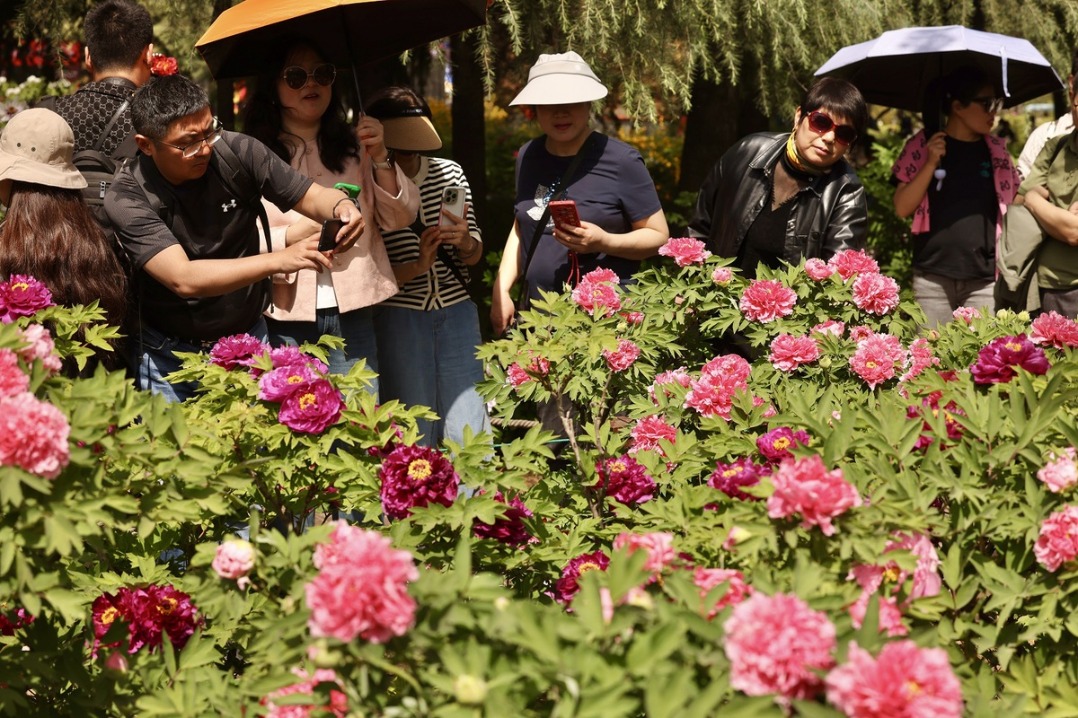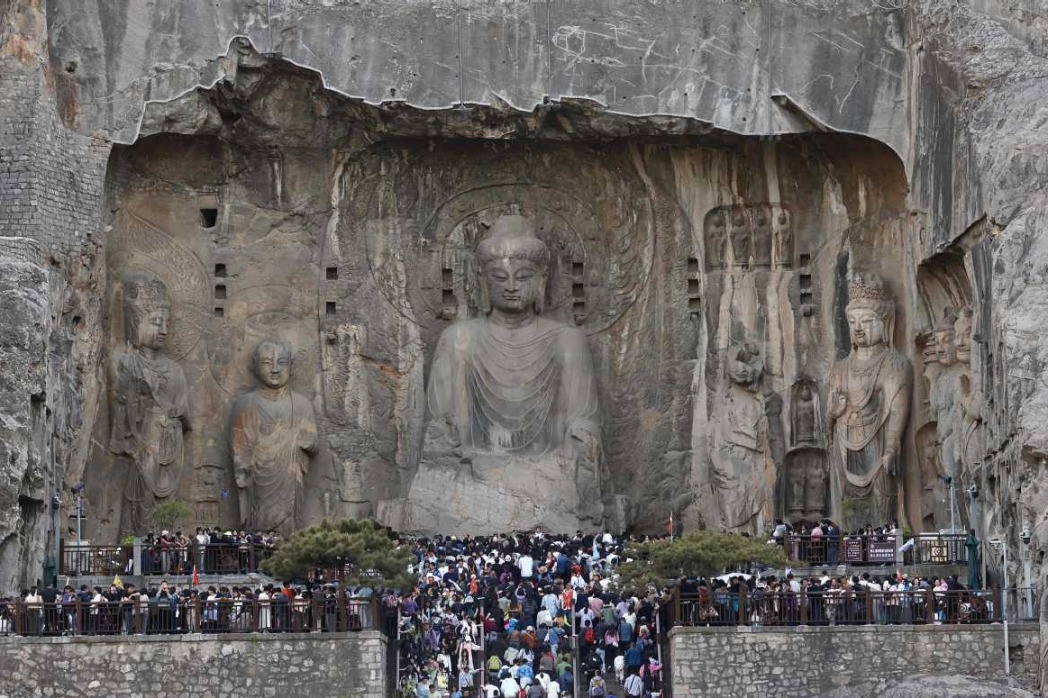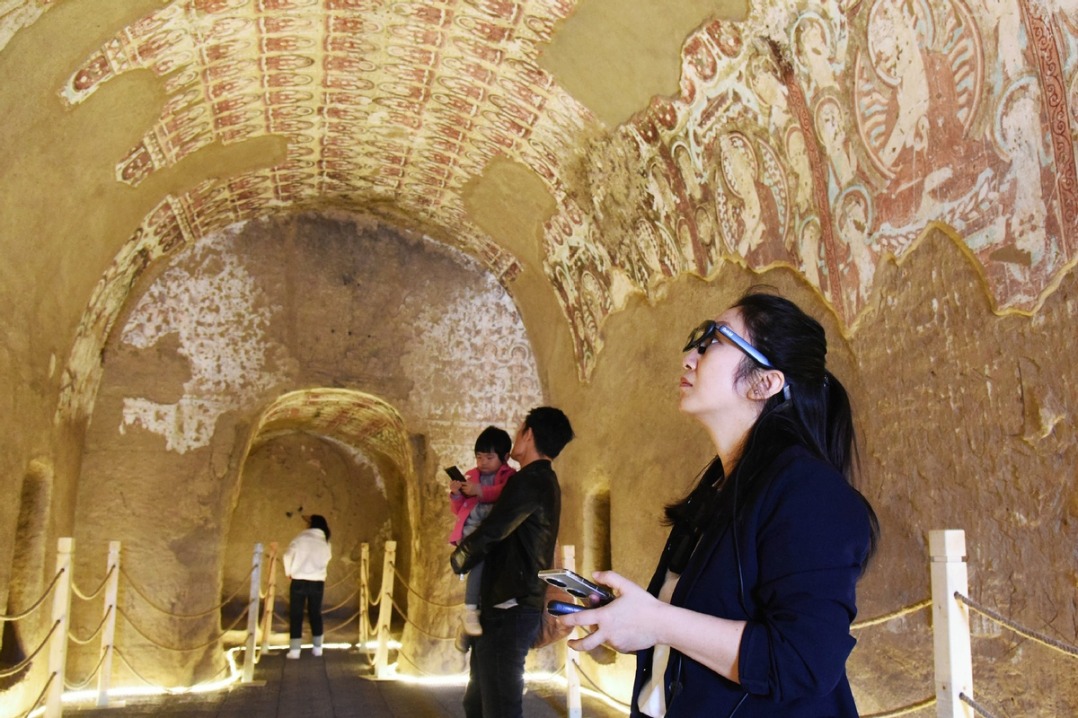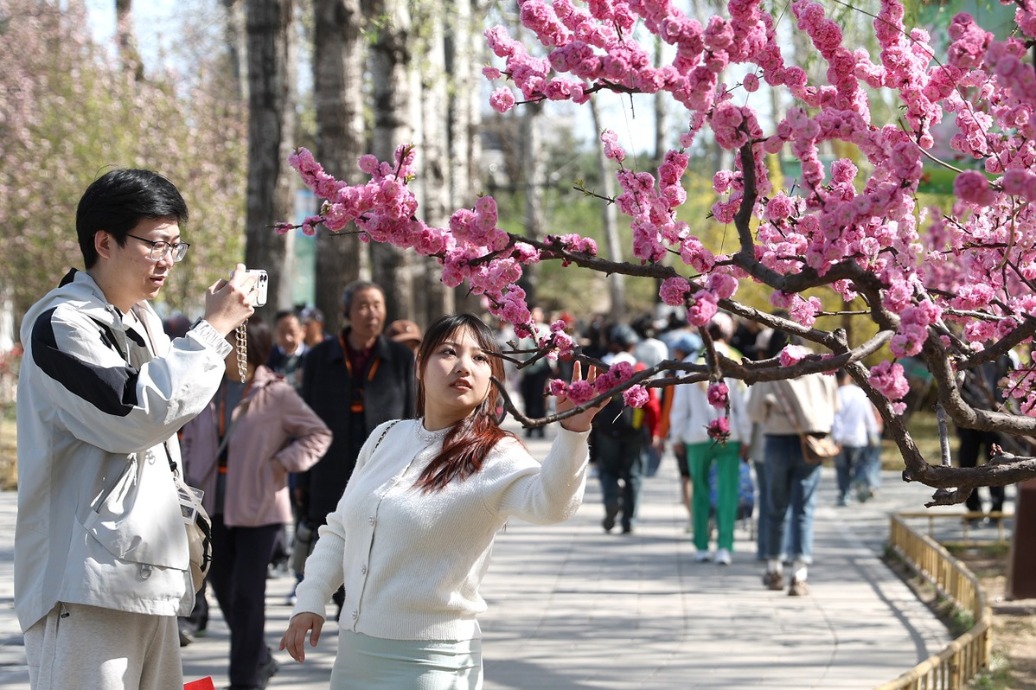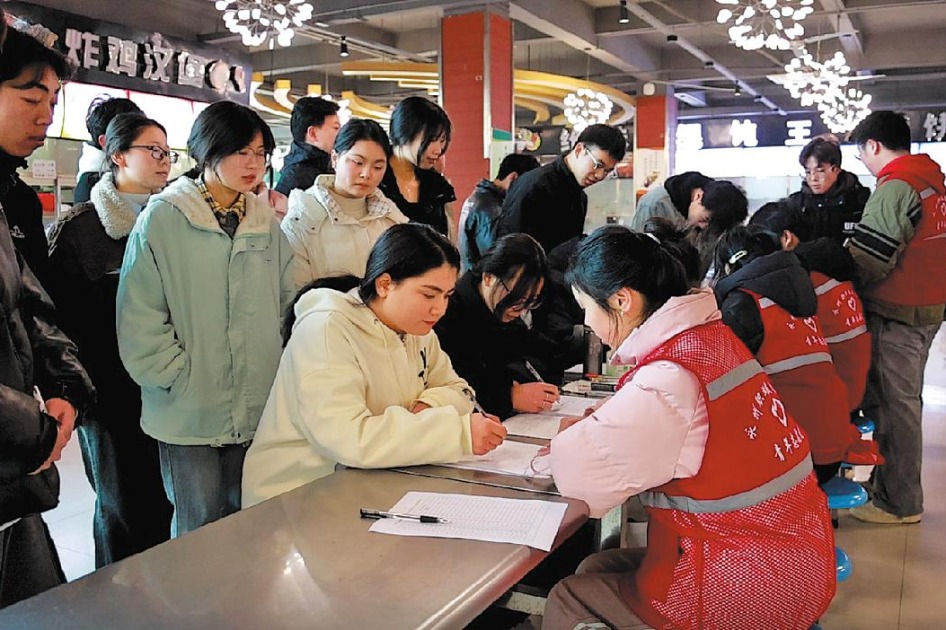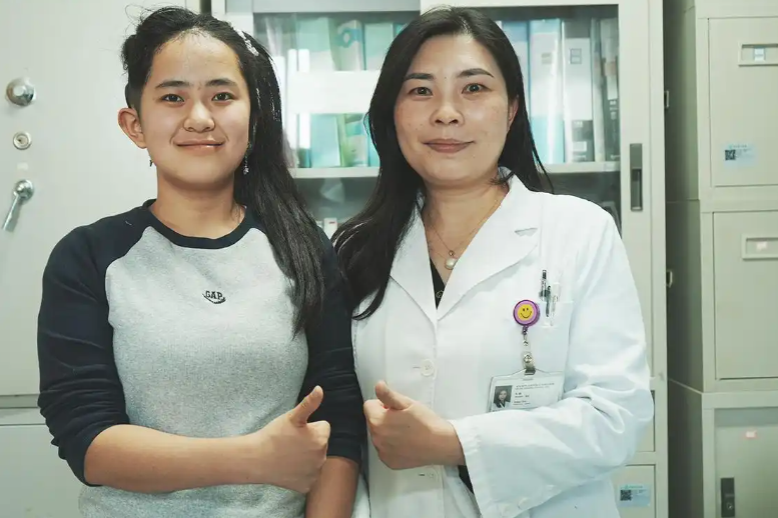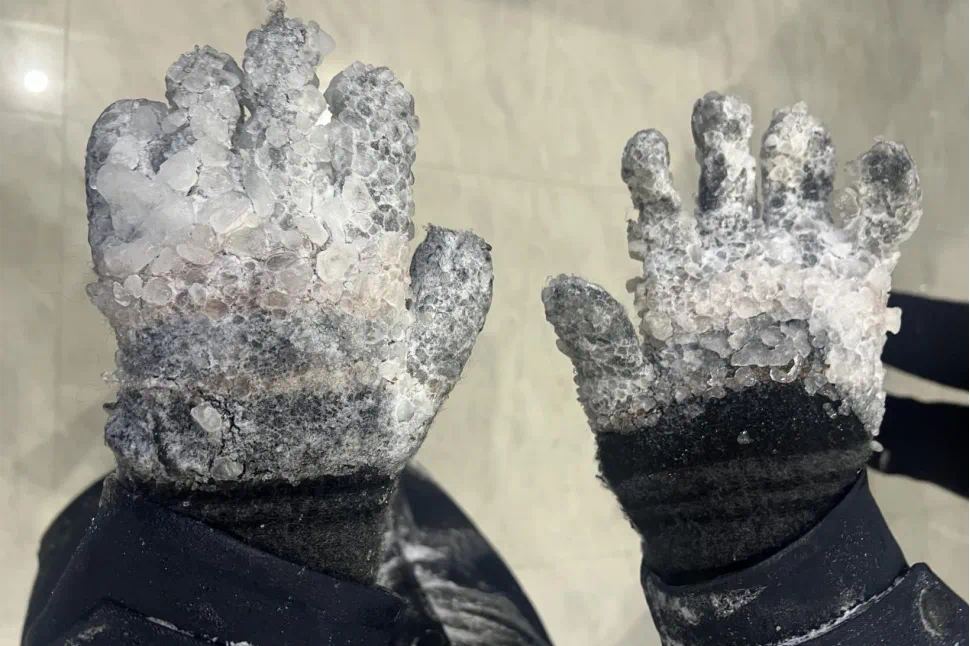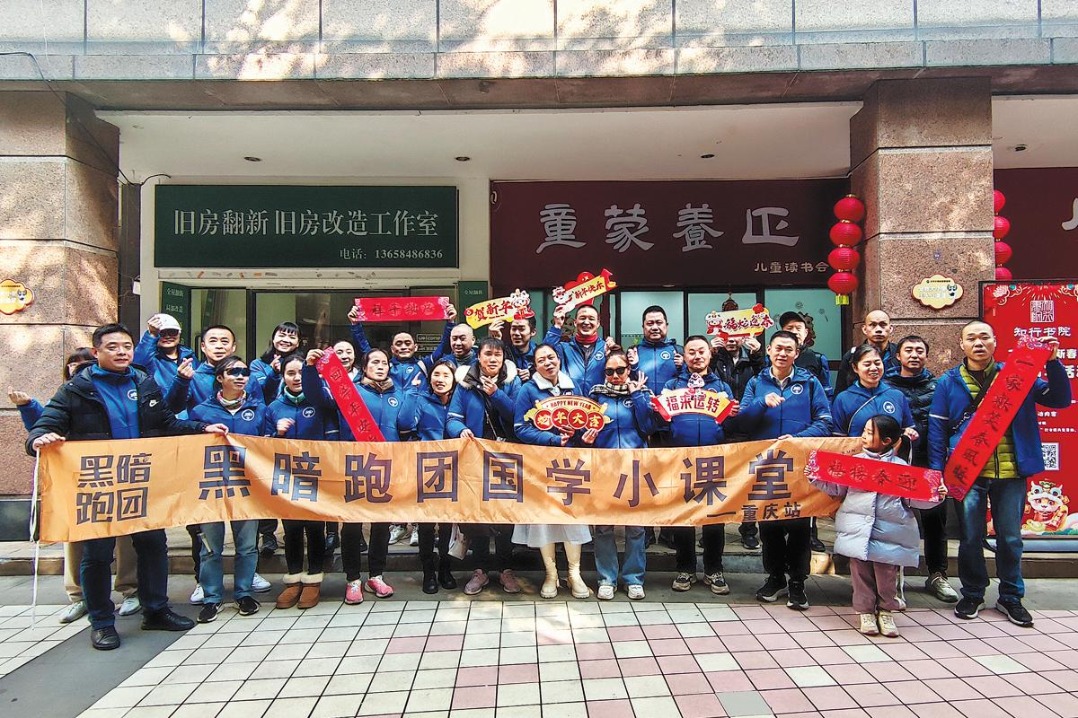Unnamed martyr reburied after 76 years in Yichang

An unnamed fallen soldier whose grave had been guarded by local villagers for 76 years was reburied at the martyrs' cemetery in Yichang, Hubei province.
Feng Jiajing, a 74-year-old villager and former head of the local militia, had been looking after the martyr's grave in Lianfeng village in Yichang's Wujiagang district.
"I have heard the hero's story since I was little," he said.
In July 1949, during the battle to liberate Yichang, a People's Liberation Army unit was led by a tall, bulky man in his early 30s with a Henan province accent. The unit was attacked during a reconnaissance mission aided by a local guide, Liu Guojun.
As the attack unfolded, the officer shielded Liu with his body. His thigh was blown apart in an explosion, and he later succumbed to blood loss. The next day, villagers bought a coffin and buried him. Since then, the grave has been guarded by the community, and the story has been passed down through generations.
"The grave was moved to the mountain under my care. I feel it is my responsibility to protect it," Feng said. His home is less than a kilometer away, and he visited the site regularly.
The village frequently organized efforts to clear weeds and branches around the grave.
"When I was in elementary school, every Qingming Festival, we would come to the grave to pay our respects, and our teacher would tell us about the heroic deeds of the unnamed man," said Feng Qing, Party secretary of Lianfeng.
"Everyone in the village knows that here lies a hero who sacrificed his life for the liberation of Yichang and the protection of the villagers," he said. "Taking care of the martyr's grave is an unspoken agreement shared by the entire village."
Jiang Jinping, director of the veteran affairs department of Wujiagang, said the grave came to the department's attention during a routine patrol last year.
On March 21, at a ceremony honoring revolutionary martyrs in Yichang, the remains of three martyrs, including the unknown soldier, were reburied in the cemetery.
"Some of the martyr's personal items were transferred to the municipal museum for preservation," Jiang said. "We also invited Zhang Qun, an associate professor in the archaeology department at Wuhan University's School of History, to clean the remains and extract DNA samples to help identify the martyr's family."
Zhang said his team used forensic archaeology and interdisciplinary techniques to analyze the remains, determine gender, estimate age and examine trauma patterns. The findings were cross-referenced with historical records to support identification efforts.
In recent years, Yichang has worked to protect and manage martyrs' memorials, improve the cemetery and consolidate scattered graves. The city is also running a project to trace the families of fallen soldiers, with relatives of five martyrs identified so far, according to Jiang.














